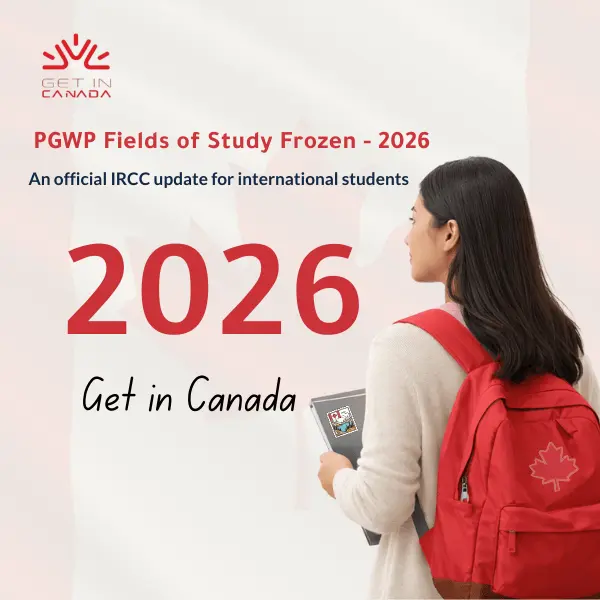2024 Updates for the New Canada Rural and Northern Immigration Pilot
The Rural and Northern Immigration Pilot (RNIP) is a community-driven initiative in Canada aiming to benefit small towns economically. It offers skilled foreign workers a pathway to Canadian permanent residency in 11 member communities across five provinces: Alberta, British Columbia, Manitoba, Ontario, and Saskatchewan. Through targeted immigration policies, the program addresses local labor shortages and demographic challenges while enhancing cultural diversity and economic growth in rural and northern regions.

Canada’s RNIP 2024 Updates
The latest updates can be represented by the following:
- North Bay, ON: The North Bay and Area Rural and Northern Immigration Pilot (RNIP) is accepting applications until January 31, 2024.
- Sudbury, ON: The Sudbury RNIP Program accepts RNIP applications until February 1, 2024.
- Timmins, ON: The intake period for January 2024 has been canceled due to a surge in applications and limited recommendations remaining. The Timmins Regional RNIP’s last intake period ended on December 23, 2023.
- Sault Ste. Marie, ON: Sault Ste. Marie is not accepting any applications after January 15, 2024.
- Thunder Bay, ON: Applications for Thunder Bay are now closed due to overwhelming volume, surpassing the criteria for applications.
- Brandon, MB: Brandon is currently accepting RNIP applications from all sectors except for long-haul drivers, as their work occurs outside of Brandon’s RNIP boundaries.
- Altona/Rhineland, MB: Altona Rhineland RNIP is open, with active job opportunities listed.
- Moose Jaw, SK: Moose Jaw 2024 RNIP will end on January 31, 2024.
- Claresholm, AB: Claresholm has issued all 2024 allocations and is not examining new applications.
- Vernon, BC: The North Okanagan Shuswap RNIP Program accepts applications until February 5, 2024.
- West Kootenay (Trail, Castlegar, Rossland, Nelson), BC: The West Kootenay Rural and Northern Immigration Pilot is not currently accepting applications, but the intake may reopen for applicant management.
Is Canada set to establish RNIP as a permanent residency program?
In the following, we will discuss further information:
Future Prospects
We eagerly await updates from Immigration, Refugees, and Citizenship Canada (IRCC) regarding the continuity of the Rural and Northern Immigration Pilot (RNIP) beyond its anticipated conclusion in August 2024.
Stakeholder Feedback
Former Immigration Minister Sean Fraser, in early 2023, highlighted the program’s positive impact, noting that communities benefiting from the RNIP aspire to welcome more participants.
Program Evaluation
While acknowledging the program’s success, Minister Fraser clarified that a formal decision to institutionalize the RNIP permanently has not been made. The initial years of the program coincided with the challenging circumstances of the COVID-19 pandemic, contributing to the cautious approach.
Immigration Targets
Canada has established a 2024 annual target of 10,875 for all pilot programs, including Caregivers, the Agri-Food Pilot, RNIP, and the Economic Mobility Pathways Project collectively. With projected increases to 14,750 in 2025 and 13,750 in 2026, as per the new immigration levels plan, there is a possibility that the RNIP could transition into a permanent immigration program.
Find out if you are eligible to get in Canada →
What are the eligibility requirements for the RNIP application?
The required requirements can be represented by:
Work experience or education
- Applicants must possess a minimum of one year of continuous job experience, either full-time or part-time, amounting to at least 1,560 hours within the preceding three years, or
- Have graduated from a publicly funded postsecondary school in the relevant locality.
Language Proficiency
Minimum language proficiency requirements vary:
- CLB/NCLC 6 with TEER 0 and 1 (NOC 0 and A)
- CLB/NCLC 5: TEER 2, 3 (NOC B)
- NCLC/CLB 4: TEER 4 and 5 (NOC C or D)
Education
Education must be at least equivalent to a Canadian secondary school (high school) diploma or validated through an education credential assessment (ECA) completed outside of Canada.
Financial Stability
Applicants must demonstrate sufficient funds to support their family during settlement or be currently employed within one of the participating communities.
Job Offer
A valid job offer from one of the 11 participating areas is required.
Commitment to the Community
Applicants must strongly desire to reside in the community if granted permanent residency in Canada.
Community-Specific Regulations
Compliance with community-specific regulations is mandatory.
Community-specific Recommendations
Selection Criteria
To obtain a reference from one of the pilot villages, candidates are chosen based on various criteria, including:
- Intent to reside in the neighborhood
- Alignment with the community’s employment needs and economic priorities
- Professional experience and skill set
- Connections to the community
Availability of Information: Additional details regarding community recruitment and endorsement procedures will be provided when communities commence candidate selection processes.
Work experience requirements
Job Characteristics
- Candidates must hold a full-time job, entailing a minimum of 30 paid hours weekly.
- The job should be non-seasonal, ensuring consistent and year-round employment.
- Employment must be permanent, lacking a predetermined end date.
- Remuneration should meet or exceed the minimum wage for the job’s National Occupational Classification (NOC).
Job Offer Standards
A valid job offer from a participating community is mandatory, meeting specific criteria:
- Full-time employment (at least 30 paid hours per week)
- The non-seasonal nature of the job
- Permanent employment status
- Compensation aligns with or surpasses the minimum wage for the NOC of the job offer.
Demonstrated Competence
Candidates must demonstrate the ability to fulfill job responsibilities through their work experience.
In conclusion, the 2024 updates for the New Canada Rural and Northern Immigration Pilot (RNIP) signify significant progress and evolution in Canada’s efforts to address regional labor shortages and bolster economic vitality in rural and northern communities. With updates ranging from eligibility criteria and community recommendations to job offer standards, the RNIP continues to offer a pathway to permanent residency for skilled foreign workers while aligning with the unique needs and priorities of participating communities. As Canada navigates through the challenges and opportunities of immigration amid the global landscape, the RNIP stands as a beacon of community-driven initiatives fostering growth, diversity, and prosperity across the country’s diverse regions.











